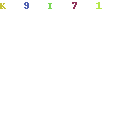The HC stayed Rule 9(1) and Rule 9(3) of the Information Technology (Guidelines For Intermediaries And Digital Media Ethics Code) Rules, 2021, saying the rules seeks to regulate something the IT Act itself does not.
The HC bench of Chief Justice Dipankar Datta and Justice Girish Kulkarni pronounced the interim order on two public interest litigations (PILs) that challenged the constitutional validity of the new rules. The HC gave the Centre three weeks to file its reply on merits to the PILs and posted them for final hearing on September 27.
Rule 9, which is partly stayed, seeks “observation and adherence” by publishers to the code of ethics and norms of conduct for journalists under the Press Council guidelines and Cable TV code. The HC said it “goes beyond the substantive Act and Rule 9 prima facie was an intrusion of the rights of the petitioners under Article 19 (1) (a) (freedom of speech and expression) of the Constitution.”
The rules now stayed are 9(1), which says, “A publisher shall observe and adhere to such code” and 9(3), which sets out a three-tier structure for dealing with complaints against such publishers. The three-tier structure comprises level I self-regulation by publishers, level II self-regulation by the self-regulating bodies of the publishers, and level III is an oversight mechanism by the central government.
The order said, “Dissent in democracy is vital. It is, however, the checks and balances that make a democracy work. There can be no two opinions that a healthy democracy is one which has developed on criticism and acceptance of contra views. Opinion based on criticism reinforces its acceptance in a democratic society. For proper administration of the State, it is healthy to invite criticism of all those who are in public service for the nation to have a structured growth but with the 2021 rules in place, one would have to think twice before criticising any such personality, even if the write/editor/publisher may have good reasons to do so without resorting to any defamation or inviting action under any other law.”
The HC said, “The operation of the 2021 Rules in its form and substance to operate would result in the writer/editor/publisher standing the risk of being punished and sanctioned should the inter-departmental committee be not in favour of criticism of any public figure,” the HC said. “It is, therefore, quite possible that a person in contravention of Rule 9(1) but without even transgressing the boundaries of reasonable restrictions under the Constitution may expose himself/itself to punishment/sanction under the 2021 Rules.”
However, the HC has not stayed Rule 9(2), which says that publishers who contravene or violate any other law can be proceeded against under that law.
The HC also did not stay another rule, 16, which empowers “blocking of information (content) in case of emergency” without hearing the person, publisher or intermediary. “No case is made out to stay Rule 16,” said the HC. The HC said the petitioners had not challenged it and lived with a similar provision in the earlier 2009 rules under the IT Act. And the HC said it was at this stage not delving into Rule 14, which provides for action to be taken by an “inter-departmental committee” as such a committee has not yet been appointed.
The HC granted liberty to both the petitioners to seek relief as and when any need arose regarding Rule 14.
On Friday, when the HC had reserved the matter for interim orders, the bench during the hearing had raised several questions to the Centre, including, “How can protection under substantive law be taken away by a delegated legislation (rules are delegated legislation, not made by Parliament)?”
The two PILs, one by the owner of a digital portal and another by mediaperson Nikhil Wagle, said the new rules intended to control “online content” and would have a chilling effect on speech. Senior counsel Darius Khambata, appearing for the portal, had said the urgency for stay was even more pronounced since the chilling effect was already being experienced via self-regulation.
While at an earlier hearing, he had sought a stay of three rules — 9, 14 and 16 — on Friday he sought a stay on at least Rule 9, which calls for adherence to code of ethics by publishers.
Wagle’s counsel Abhay Nevgi had sought a stay of the entire rules.
The central government, represented by additional solicitor general Anil Singh, had opposed such a plea, saying the rules provide primarily for self-regulation and government oversight, the committee for which is not yet set up.
The HC on Friday, citing an example from the journalists’ code of conduct which expects accuracy in reporting, and also for photo-journalists to be humble and unobtrusive and treat all subjects with respect and dignity, said, “If he is not humble, does he have to be penalised? You are restricting the liberty of thought.”
The rules have incorporated what are mere guidelines under the Press Council of India and the Cable TV code and made them mandatory, stepping beyond the rule-making powers under the IT Act besides breaching the reasonable restrictions permissible under Article 19 (2) of the Constitution, argued Khambata. He said the rules are “manifestly unreasonable” and do no good to democracy. The bench too had said during the Friday court hearing, “The Press Council guidelines are norms of behaviour. How can you put it to such exalted status of mandatory compliance? Let us know if you are restricting it to Article 19 (2) (reasonable restrictions on free speech).”
Singh said the main grievance of the petitioners is against government oversight but added that the proposed inter- departmental committee — which can even block public access to content in emergent cases — under the new IT rules is not yet notified; the ministry is to constitute it, and it is at the final stage of finalisation, hence no action is likely to take place in any case.
Source: https://timesofindia.indiatimes.com/india/in-interim-order-bombay-high-court-stays-some-provisions-of-new-it-rules/articleshow/85329863.cms



